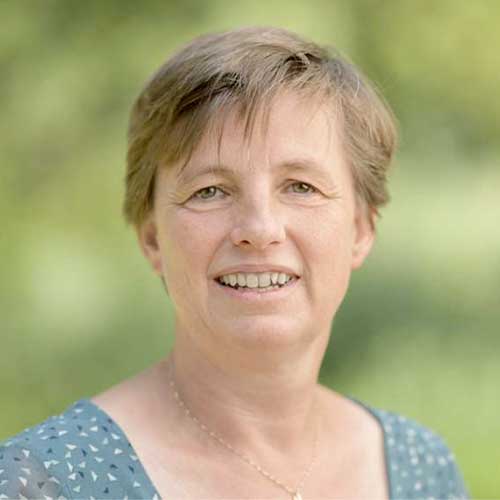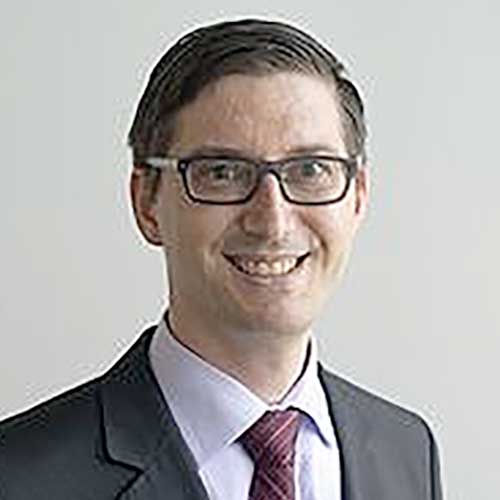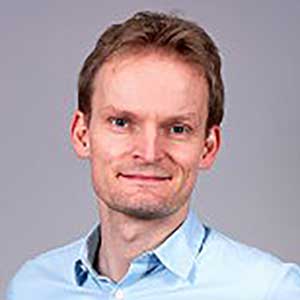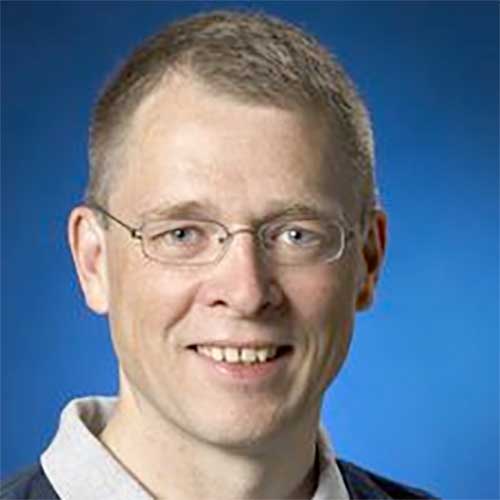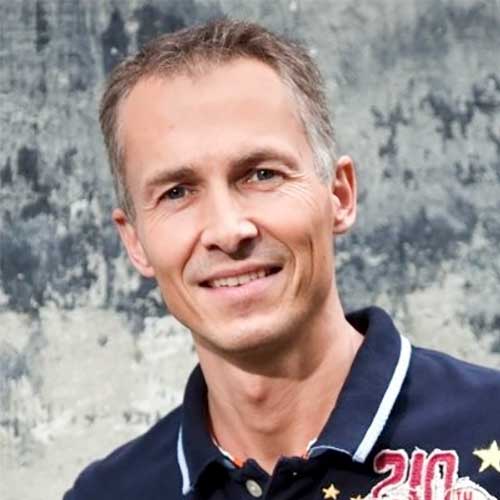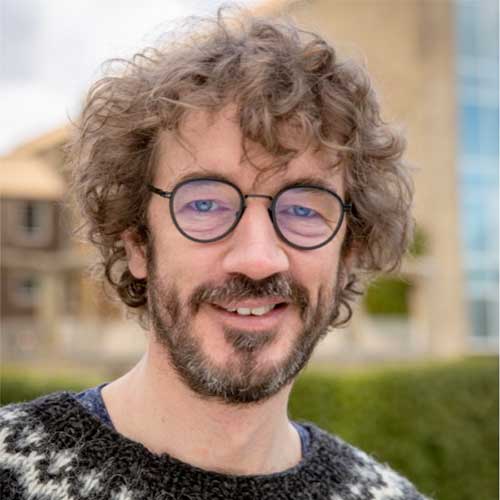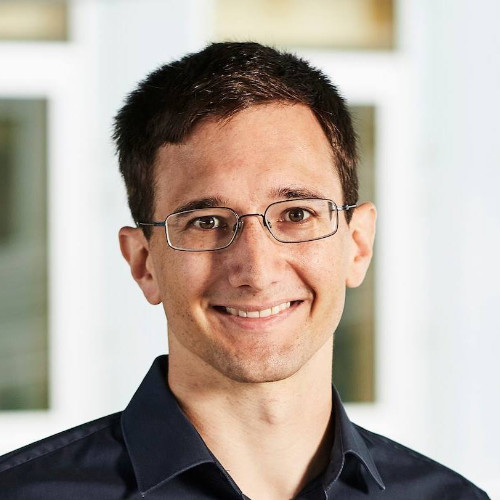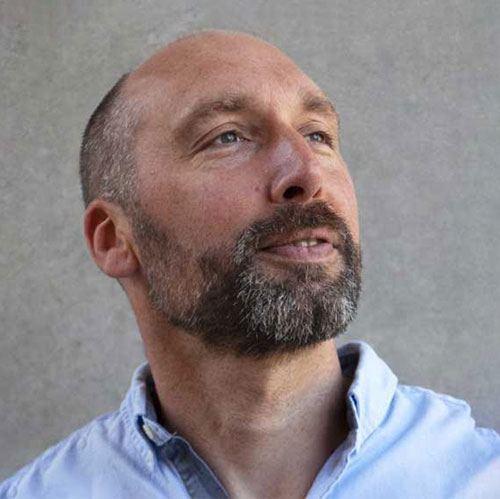26 – 27 SEPTEMBER 2022
HELNAN HOTEL MARSELIS – AARHUS
Software Research: Impact and Challenges
Abstract: Software is an essential, yet invisible, driving force of the present world. There is, however, a striking contrast between, on the one hand, the omnipresence of software in our society and, on the other hand, the extraordinary difficulty to guarantee the correctness, reliability, performance, scalability, safety, and sustainability of modern software systems. There is an urgent need for software engineering innovations: the world of software is a moving target, due to the ever‐increasing size and complexity of software, the technological churn of both hardware and software, the increased heterogeneity of software, and the emergence of new societal and technological challenges.
Fostering such innovations requires fundamental software research, independently of specific application. In this talk I will outline the major challenges in software research, what is needed to address these challenges, and the expected impact on software in our society.
Bio: Marieke Huisman is a professor in Software Reliability at the University of Twente. She is well-known for her work on program verification of concurrent software. In 2011, she obtained an ERC Starting Grant, which she used to start development of the VerCors verifier, a tool for the verification of concurrent software. Currently, as part of her NWO personal VICI grant Mercedes, she is working on further improving verification techniques, both by enabling the verification of a larger class of properties, and by making verification more automatic. Since 2019 she is SC chair of ETAPS. Besides her scientific work, she also actively works on topics related to diversity, equity and inclusion, as well as science policy. She is a member of the executive board of VERSEN, the Dutch assocation of software researchers, and chaired this association from 2018 until 2021. She is also a member of the round table computer science of the Dutch Research Council.
Mosaics of Big Data
Database Systems and Information Management – Trends and a Vision
Abstract: The global database research community has greatly impacted the functionality and performance of data storage and processing systems along the dimensions that define “big data”, i.e., volume, velocity, variety, and veracity. Locally, over the past five years, we have also been working on varying fronts. Among our contributions are: (1) establishing a vision for a database-inspired big data analytics system, which unifies the best of database and distributed systems technologies, and augments it with concepts drawn from compilers (e.g., iterations) and data stream processing, as well as (2) forming a community of researchers and institutions to create the Stratosphere platform to realize our vision. One major result from these activities was Apache Flink, an open-source big data analytics platform and its thriving global community of developers and production users.
Although much progress has been made, when looking at the overall big data stack, a major challenge for database research community still remains. That is, how to maintain the ease-of-use despite the increasing heterogeneity and complexity of data analytics, involving specialized engines for various aspects of an end-to-end data analytics pipeline, including, among others, graph-based, linear algebra-based, and relational-based algorithms, and the underlying, increasingly heterogeneous hardware and computing infrastructure.
At TU Berlin, DFKI, and the Berlin Institute for Foundations of Learning and Data (BIFOLD) we currently aim to advance research in this field via the NebulaStream and Agora projects. Our goal is to remedy some of the heterogeneity challenges that hamper developer productivity and limit the use of data science technologies to just the privileged few, who are coveted experts. In this talk, we will outline how state-of-the-art SPEs have to change to exploit the new capabilities of the IoT and showcase how we tackle IoT challenges in our own system, NebulaStream. We will also present our vision for Agora, an asset ecosystem that provides the technical infrastructure for offering and using data and algorithms, as well as physical infrastructure components.
Bio: Volker Markl is a German Professor of Computer Science. He leads the Chair of Database Systems and Information Management at TU Berlin and the Intelligent Analytics for Massive Data Research Department at DFKI. In addition, he is Director of the Berlin Institute for the Foundations of Learning and Data (BIFOLD). He is a database systems researcher, conducting research at the intersection of distributed systems, scalable data processing, and machine learning. Volker led the Stratosphere project, which resulted in the creation of Apache Flink.
Volker has received numerous honors and prestigious awards, including two ACM SIGMOD Research Highlight Awards and best paper awards at ACM SIGMOD, VLDB, ICDE, and EDBT. He was recognized as ACM Fellow for his contributions to query optimization, scalable data processing, and data programmability. He is a member of the Berlin-Brandenburg Academy of Sciences. In 2014, he was elected one of Germany’s leading “Digital Minds“ (Digitale Köpfe) by the German Informatics Society. He also is a member of the Berlin-Brandenburg Academy of Sciences and serves as advisor to academic institutions, governmental organizations, and technology companies. Volker holds eighteen patents and has been co-founder and mentor to several startups.
Workshops
Organiser: Christian S. Jensen, Aalborg University
Invited technical talk by Volker Markl:
NebulaStream: Data Management for the Internet of Things
Organisers: Rasmus Pagh, University of Copenhagen & Rico Jacob, IT University of Copenhagen
11.30: Invitation to differential privacy
Boel Nelson and Rasmus Pagh, University of Copenhagen
12.00: Algorithmic Cheminformatics
Jakob Andersen, University of Southern Denmark
12.30: A study on succinct data structures
Mingmou Liu, University of Copenhagen
Organiser: Susanne Bødker, Aarhus University
11.30 Presentation and status of people
12.00 Gaze and Eye Movement in Interaction
by Hans Gellersen, Aarhus University/Lancaster University
Eye movement and gaze are central to human interaction with the world. Our visual system not only enables us to perceive the world, but also provides exquisite control of the movements we make in the world. The eyes are at the heart of this, never still, and in constant interaction with other parts of our body to direct visual attention, extract information from the world, and guide how we navigate and manipulate our environment. Where we look implicitly reflects our goals and information needs, while we also able to explicitly direct our gaze to focus attention and express interest and intent. This makes gaze a formidable modality for human-computer interaction (HCI).
In this talk, I will highlight how closely the movement of our eyes is coupled with other movement, of objects in the visual field, as well movement of our hands, and our head and body, and discuss examples of novel interfaces that leverage eye movement in concert with other motion.
Hans Gellersen is Professor of Interactive Systems at Lancaster University and Aarhus University. His research background is in sensors and devices for ubiquitous computing and human-computer interaction and he has worked on systems that blend physical and digital interaction, methods that infer context and human activity, and techniques that facilitate spontaneous interaction across devices. Over the last ten years a main focus of his work has been on eye movement. In 2020, he was awarded an ERC Advanced Grant by the European Research Council for research on Gaze and Eye Movement in Interaction.
Organiser: Jan Madsen, Technical University of Denmark
11:30 The CPS ecosystem — status
11:45 Partner presentations covering; scientific focus, application domains, people, key projects (15 min each):
12:30 Identifying the Grand Challenges of CPS
Organiser: Kim Guldstrand Larsen, Aalborg University
SESSION 1 Verification
BRIDGE: Verifiable and Safe AI for Autonomous Systems
Overview and Status
by Kim Guldstrand Larsen, Aalborg University
HOFOR Case and Strategy Representation
by Andreas Holck Høegh-Petersen, IT University of Copenhagen
Aarhus Vand Case and Reinforcement Learning
by Martijn Goorden (AAU)
TECHNICAL LIGHTENING TALKS
Verification of Dynamical Systems
by Max Tschaikowski, Aalborg University
Verification of Neural Network Control Systems
by Christian Schilling, Aalborg University
Formal Verification and Robust Machine Learning
by Alessandro Bruni, IT University of Copenhagen
EXPLORE: Verifiable and Robust AI FUTURE projects
ALL
EXPLORE: Certifiable Controller Synthesis for Cyber-Physical Systems FUTURE projects
Martijn Goorden (short status)
Organiser: Mads Nielsen, University of Copenhagen
11:30: Overview of DIREC and Pioneer Centre activities
Mads Nielsen, KU
11:40: EXPLAIN ME, Explainable AI for Medical Education
Aasa Feragen, DTU
12:00: HERD – Human-AI Collaboration: Engaging and Controlling Swarms of Robots and Drones
Anders Lyhne Christensen, SDU
Maria-Theresa Oanh Hoang, AAU
Kasper Andreas Rømer Grøntved, SDU
12.20: Trimming Data Sets: a Verified Algorithm for Robust Mean Estimation
Alessandro Bruni, IT University of Copenhagen
12.40: Privacy and Machine Learning
Peter Scholl, Aarhus University
Organiser: Claudio Orlandi, Aarhus University
Part I: Differential Privacy
(joint session with New Perspectives on Algorithms and Datastructures)
11.30 Invitation to differential privacy
Boel Nelson and Rasmus Pagh, University of Copenhagen
12.10 – Small break to change room
Part II: Security in AI
(joint session with AI – Machine Learning, Computer Vision, NLP)
12.20 Trimming Data Sets: a Verified Algorithm for Robust Mean Estimation
Alessandro Bruni, IT University of Copenhagen
12.40 Privacy and Machine Learning
Peter Scholl, Aarhus University
Workshops continued
Organiser: Christian S. Jensen, Aalborg University
Spatial Data Management
14.05 – 14.30: Efficient Data Management for Modern Spatial Applications and the Internet of Moving Things
by Eleni Tzirita Zacharatou (ITU)
14.30 – 14.55: Building a maritime traffic network for route optimization using AIS data
by Búgvi Benjamin Jónleifsson Magnussen & Nikolaj Blæser (RUC)
14.55 – 15.20: Big Mobility Data Analytics: Algorithms and Techniques for Efficient Trajectory Clustering
by Panagiotis Tampakis (SDU)
Organisers: Rasmus Pagh, University of Copenhagen & Rico Jacob, IT University of Copenhagen
14.00: Stochastic Games with Limited Memory Space
Kristoffer Hansen, Aarhus University
14.30: Recent Advances in I.I.D. Prophet Inequalities
Kevin Schewior, University of Southern Denmark
15.00: New algebraic formula lower bounds for Iterated Matrix Multiplication
Nutan Limaye, IT University of Copenhagen
Organiser: Susanne Bødker, Aarhus University
14.00 Rework – status, presentation and workshop
15.00 Wrap-up and a quick discussion of the Danish HCI research day
Organiser: Jan Madsen, Technical University of Denmark
14:00 Presentation of current WS6 DIREC projects (15 min each):
Biochip routing, (Explore)
Luca and Kasper (DTU)
Technologies for executing AI in the edge, (Bridge)
Emil and Ahmad (DTU, SDU)
Adaptive Neural Networks on Embedded Platforms,
Jalil Boudjadar (AU)
CPS with HITL, (Explore)
Mahyar Touchi Moghaddam (SDU)
Business Models for Embedded AI – Current case company business models and beyond
Reza and Ben (CBS)
15:15 Conclusions of the day
Organiser: Kim Guldstrand Larsen, Aalborg University
SESSION 2 Software Engineering
BRIDGE: SIOT – Secure Internet of Things – Risk analysis in design and operation
by Jaco van de Pol & Alberto Lafuente (short status)
EXPLORE: DeCoRe: Tools and Methods for the Design and Coordination of Reactive Hybrid Systems
by Thomas Hildebrandt (short status & technical talk)
TECHNICAL LIGHTENING TALKS
Lightweight verification of concurrent and distributed systems
by Alceste Scala (DTU)
Certified model checking – verifying the verifier
by Jaco van de Pol, Aarhus University
Refinement and compliance
by Hugo-Andrés López, Technical University of Denmark
Differential Testing of Pushdown Reachability with a Formally Verified Oracle
by Anders Schlichtkrull, Aalborg University
Monitoring of Timed Properties
by Kim G. Larsen, Aalborg University
Organiser: Mads Nielsen, University of Copenhagen
14:00 Large-scale Neuroimaging Study on a Danish Cohort: COVID-19, Brain Volume, and microbleeds
Kiril Klein, University of Copenhagen
14:15 Fetal Ultrasound scanning assistance
Manxi Lin, Technical University of Denmark
14:30 Inducing Gaussian Process Networks
Thomas Dyhre, Aalborg University
14:45 Bridge project: Deep Learning and Automation of Imaging-Based Quality of Seeds and Grains
Lars Kai Hansen, Technical University of Denmark
15:00 Fine-Grained Image Generation with Super-Resolution
Andreas Aakerberg & Thomas Moeslund, Aalborg University
15:15 Summary of workshop
Mads Nielsen, University of Copenhagen
Organiser: Claudio Orlandi, Aarhus University
14.00: Security Protocols as Choreographies
by Marco Carbone
14.20: A formal security analysis of Blockchain voting
by Bas Spitters, Aarhus University
14.40: Challenges in anti-money laundering and how cryptography can help
by Tore Frederiksen, The Alexandra Institute
15.00: Networking
One Minute Madness
Presentation of DIREC projects following Q&A
Moderator: Jan Madsen, University of Southern Denmark
Abstract
Quantum computers have the potential to solve certain tasks that would take millennia to complete even with the fastest (conventional) supercomputer. Numerous quantum computing applications with a near-term perspective (e.g., for finance, chemistry, machine learning, optimization) and with a long-term perspective (i.e., cryptography, database search) are currently investigated. However, while impressive accomplishments can be observed in the physical realization of quantum computers, the development of automated methods and software tools that provide assistance in the design and realization of applications for those devices is at risk of not being able to keep up with this development anymore.
This may lead to a situation where we might have powerful quantum computers but hardly any proper means to actually use them. In this talk, we discuss how design automation can help to address this problem. This also includes an overview of corresponding software tools for quantum computers covering the simulation, compilation, and verification. More details here.
Bio
Robert Wille is a Full and Distinguished Professor at the Technical University of Munich, Germany, and Chief Scientific Officer at the Software Competence Center Hagenberg, Austria (a technology transfer company with 100 employees).
He received the Diploma and Dr.-Ing. degrees in Computer Science from the University of Bremen, Germany, in 2006 and 2009, respectively. Since then, he worked at the University of Bremen, the German Research Center for Artificial Intelligence (DFKI), the University of Applied Science of Bremen, the University of Potsdam, and the Technical University Dresden. From 2015 until 2022, he was Full Professor at the Johannes Kepler University Linz, Austria, until he moved to Munich.
His research interests are in the design of circuits and systems for both conventional and emerging technologies. In these areas, he published more than 400 papers and served in editorial boards as well as program committees of numerous journals/conferences such as TCAD, ASP-DAC, DAC, DATE, and ICCAD. For his research, he was awarded, e.g., with Best Paper Awards, e.g., at TCAD and ICCAD, an ERC Consolidator Grant, a Distinguished and a Lighthouse Professor appointment, a Google Research Award, and more.
Workshops
Organiser: Mark Riis, Technical University of Denmark
Collaboration on entrepreneurship across universities
Which joint activities should we initiate in 2022-2023
Organiser: Mikkel Baun Kjærgaard, University of Southern Denmark
How to make computing education appeal to a broader range of students
by Claus Brabrand, IT University of Copenhagen
We present recent research on gender diversity in Computing. Recent research documents strong and significant gender effects related to the interests in working with PEOPLE vs THINGS along several dimensions. In particular, this relates to the themes of teaching/learning activities (i.e., the themes of exercises, projects, and examples), the framing of advertisement materials, and the composition of courses on educational programmes. We will explain these results and effects as well as give actionable evidence-based recommendations for how to make Computing educational activities & programmes appeal to a broader range of students.
How digital learning technology can provide insights on teaching quality of large classrooms
by Md Saifuddin Khalid, Department of Mathematics and Computer Science, Technical University of Denmark
Semester-end and mid-term online feedback are important information for both students and course instructors etc. Unfortunately, the teaching quality evaluation tools that are used at Danish universities are often time consuming and do not allow for self-reflection on teaching and learning, which can enable mutual understanding and collaboration between the students and course instructors. Join us at this workshop, where we will provide a tutorial and experience from two large courses adopting Wyblo. Wyblo is a people-centered learning experience platform which provides useful insights on teaching quality to both course instructors and students.
How to use technology to scale courses
by Jakob Lykke Andersen, Dept. of Mathematics and Computer Science, University of Southern Denmark and Ulrik Nyman, Dept. of Computer Science, Aalborg University
In this workshop we will discuss how to use software and infrastructure for scaling and improving quality of teaching in Computer Science. As inspiration for the discussion, we have two presentations:
Teaching 400 students to program in 16 weeks with 3 teachers and 17 teaching assistants
by Jon Sporring & Ken Friis Larsen, KU
At the Department of Computer Science, University of Copenhagen, we have recently upscaled our introduction to programming for our bachelor courses. In the last 5 years, we have grown from 200 to 400 students, and in the process, we have developed IT tools to both manage the growth and at the same time increase the learning quality. In this talk, we will discuss the pedagogical challenges, the resource challenges, the developed tools for helping the students self-learn and give the students structured feedback, and the lessons learned in the process.
Automatic feedback and correction of programming software assignments for scalable teaching
by Miguel Enrique Campusano Araya & Aisha Umair, SDU
In this talk, we present Scalable Teaching. This tool uses automatic testing to grade students’ programming assignments and provides feedback to them automatically. Moreover, Scalable Teaching allows professors to grade assignments and give feedback manually more efficiently. We have successfully tested this tool in several software engineering courses with more than 100 students.
Organiser: Thomas Hildebrandt, University of Copenhagen
Make your research visible and understood outside academia
by Peter Hyldgård, Sciencecom.dk
How do you tell a simple story about your research that everyone can understand – without compromising on the academic content?
And how do you build a bridge to an audience that does not have any immediate interest in/knowledge of your topic?
The speaker will introduce a number of simple tools for finding a story about your research, which can be uses in many contexts: When you have to seek funding, when you are interviewed by a journalist – or when you must tell your Uncle Adam about your work. The workshop will be a mixture of presentations and small exercises, with a slightly larger final exercise where the participants will give a – very short – oral ‘pitch’ of their research.
Organiser: Helle Zinner Henriksen, Copenhagen Business School
End of the Rainbow
In this session we will discuss how technical solutions and ideas from some of the DIREC projects can be diffused to a wider context, supporting innovation and impact.
Session speakers:
The session focuses on the business potential and evolves around the question “How to harvest spill-over benefits from foundational tech research?”
Inspired by the session speakers’ input the audience is invited to contribute to the session in the discussion of potential avenues to address the question.
The aim is to illustrate the benefit of addressing tech and business.
Organiser: Jan Madsen, Technical University of Denmark
10:00 – 12:00 Tutorial:
• Basic concepts
• Models of computations
• Use cases / Applications
• Tools + Integration to host
Speakers:
12:00 – 12:30 Open discussion on opportunities for and in DIREC
Discussion leader: Sven Karlsson, DTU Compute
How can data accelerate the green transformation?
Hierarchical forecast reconciliation
by Jan Kloppenborg Møller, DTU Compute
A unique collaboration between a university and a private company
In 2019, the Swiss non-profit Concordium Foundation founded the Concordium Blockchain Research Centre Aarhus at Aarhus University (AU). This is a unique example of collaboration between a university and a company where the company sponsors the research carried out at the university with a substantial amount of money.
In this session Associate Professor Bas Spitters from Aarhus University and Senior Researcher Daniel Tschudi from Concordium will share their experiences from the collaboration and comment on issues like:
About Concordium Blockchain Research Centre Aarhus
The research center is to provide the basic research needed to build energy-efficient and scalable blockchain technology that is provably secure. Along the way, it is expected that a lot of discoveries in the blockchain space and related sciences that we cannot anticipate at the onset.
About the Swiss non-profit Concordium Foundation
The mission is to fund research in the blockchain space, and build a new foundational blockchain with focus on business and regulatory compliance. The center performs free, basic research in the theory and technology underlying blockchains. All research performed in the center is open source and patent free and will help build a solid foundation for the entire blockchain space.
Moderator: Professor Ole Lehrmann Madsen
Lars, Steffen and Kresten are all graduates from department of computer science at Aarhus University. They have all made an impressive careers with high tech comp companies in Silicon Valley and Denmark. These companies include Next Computer, Sun Micro Systems, VMware, Google, and Uber. They have also been involved in a number of start-ups including Animorphic Systems, OOVM, Toitware, Trifork and Humio. These endeavors have resulted in development of a large palette of new innovative digital technologies.
In the panel they will tell us about their experience and highlight the most important lessons from their careers including their life as computer science students. We will ask them about their advice to students and young candidates of today regarding how to get an interesting carrier working with ground-breaking digital technologies and getting them out in successful products.
